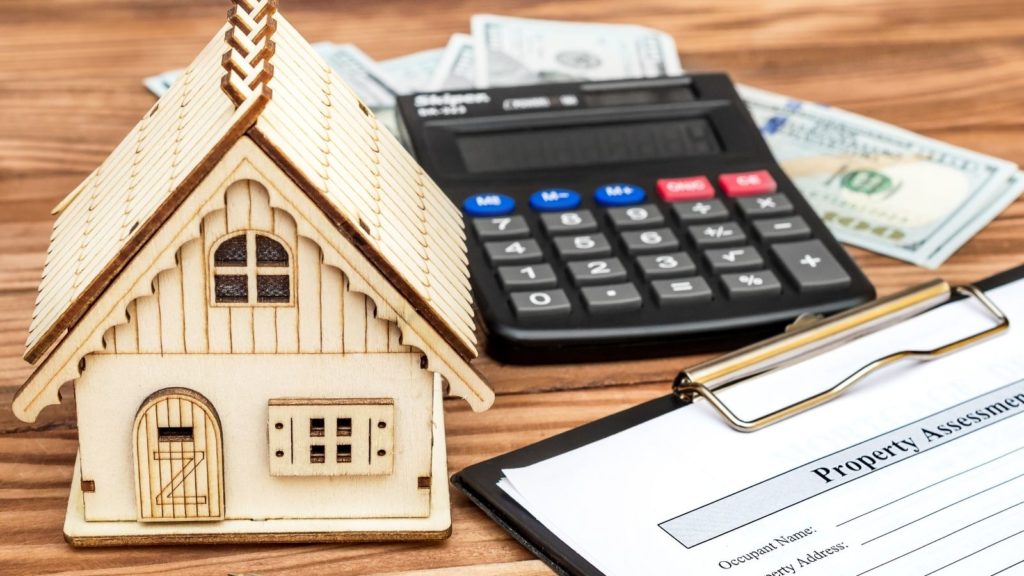Are you getting ready to sell your house? If so, it’s important to price it correctly from the start. Pricing too high can scare away potential buyers while pricing too low can result in less money in your pocket. Here are a few things to think about as you set your home’s price.

Online Home Valuation Calculators
Many home sellers make their first move by checking online home valuation calculators to get an idea of what their house might be worth. Unfortunately, those aren’t reliable sources. They’re unreliable because they cannot take into consideration whether the neighborhood has appreciated or depreciated, and they can’t assess how well you’ve maintained your home or what kind of upgrades and renovations you may have done. It’s okay to start online with a quick search to satisfy your curiosity, but it shouldn’t be your go-to source for pricing your house.
The Sentimental Value of Your Home
Parting with the memories you’ve made in your home can be difficult. Your mind might calculate all the holidays spent there, the milestones accomplished, challenges overcome, and how the members of your household grew over time. Unfortunately, you cannot charge a buyer for your sentimental value. You have to strip away the emotion of it and treat this as a real estate business transaction. You’re not parting with your memories – you get to take those with you.
The Condition of Your Home
One of the most significant factors in getting a fair or above-the-list price offer on your home is the condition that it’s in. Make sure all of the major systems and appliances are in excellent working order. The house should be decluttered, depersonalized, deep cleaned, and staged to show in its best light. The better and fresher your house looks, the quicker it will sell, and you’ll be able to warrant a higher asking price.
Your Real Estate Agent and a CMA
Make sure you have a qualified, experienced agent representing your best interests. They can make suggestions and help you determine the right asking price based on what research they’ve done in the neighborhood and how other homes similar to yours are currently priced. Make sure you ask for a CMA (comparative market analysis) because it will show you where your price stands against current competition.
The CMA will show you the list price of homes that have recently sold and any comparable ones currently being sold. The CMA will also show the asking prices of those same homes. If there is a gap between what buyers are offering and what sellers are asking, your agent can negotiate with the sellers to get it that gap down, or you may have to adjust your listing price accordingly.
Listing in a Sellers' Market Garners a Higher Price
It’s important to know the market conditions to get the fairest price for your home.
A buyers’ market is when there are more available houses for sale than there are potential buyers. This is when home sellers have to be flexible on their list price in order to get any offers at all.
On the other hand, when the market is dominated by a lack of inventory or tight inventory, it’s considered a sellers’ market. That means that buyers will come after your house with full offers because they’re competing against many others who want it as well. This type of competition makes it much easier for sellers to justify raising their prices, especially if the CMA shows a little gap between its value and what people are offering for it.
Listing in the Right Season
When you decide to make a move, be strategic about when you list your home for sale. Spring and autumn are the most popular times of the year for real estate. People are eager to get outdoors after staying inside for the majority of the harsher seasons.
Get a Listing Appraisal
Having a professional take an objective look at your home and determine its value is important. This will not only give you an approximate idea of what your house might sell for, but it can also help you get comfortable with the process and help alleviate any anxiety about pricing your home.
A listing appraisal might also help you find ways to upgrade the house – such as replacing doorknobs and locks, light switches and socket plate covers, faucets, lighting fixtures, and other small updates that could add hundreds, possibly thousands of dollars to your appraisal. Furthermore, you can use that appraisal as a marketing tool when showing the home.
There will, however, be another listing appraisal ordered by the buyer’s lender once you’ve agreed to terms. The appraisal you had done before you listed cannot be used in place of the lender’s appraisal, so you’ll have to open your home to an appraiser one more time.
Some real estate agents are also certified appraisers, so ask your real estate agent for more information in listing appraisals.
Save Room for Negotiations and Seller Closing Costs
There are likely to be negotiations on the final selling price. That is why it’s important for you to keep room in your listing price, so you have wiggle room when negotiating with buyers who want to pay less than your asking price.
It’s also essential that you consider all closing costs associated with the sale, including the real estate agent commissions, buyer fees, tax prorations, homeowner insurance premiums, and utility transfer fees. These expenses can add up quickly, so taking them into consideration now might help prevent some unpleasant surprises later.
Finally, remember that most homes move fairly quickly at or above list price during a sellers’ market season. If your goal is to sell your house fast, then pricing it just right will ensure it sells soon.
Conclusion
Pricing your home just right is an art that takes some trial and error. The best way to ensure your asking price is on track is to request a CMA on the home before listing it for sale. This will help you get comparable sale prices of homes similar to yours in the same neighborhood, giving you the most accurate list price based on current market trends.
Once you’ve established a fair list price, know when the optimal time is to list your home for sale in order to get good feedback from buyers and their bids. And finally, make sure you have room in your listing price so you can finalize negotiations with potential buyers without feeling anxious about how many thousands of dollars are lost or gained simply by adjusting your asking price up or down a few thousand dollars.
Talk with your real estate agent today for more tips on how to price your house for sale.

